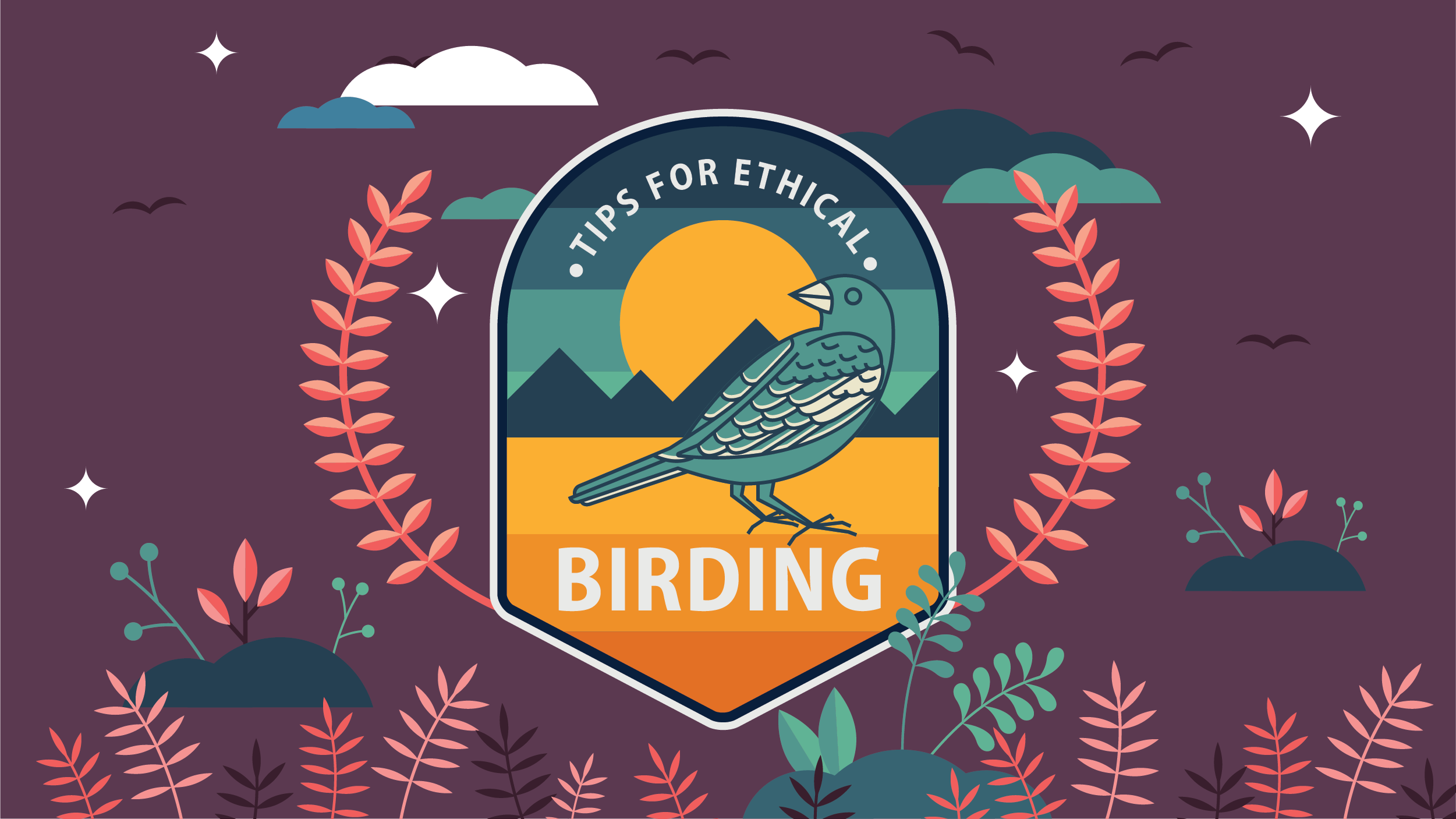The interest in birding/bird watching, bird photography, and being out in nature has increased over the past few years. As far as observing nature and having a growing appreciation for it, this is amazing. The more people that care about nature, the better; however, there are a couple of things to keep in mind while you are out exploring. Your first priority should be your safety and the welfare of wildlife, in this case, birds. Seeing a new species or an old favorite is the best feeling in the world, but be mindful of the environment you are in. Here is a list of things to consider while you are out exploring.
GIVE BIRDS PLENTY OF SPACE
Many of us want to get as close as possible to observe and identify birds, but getting too close can create unnecessary stress on the bird, especially during nesting or mating season.
Get the best view by using binoculars, a spotting scope, or a long-lens camera and view from a safe distance. Hazing or chasing could cause birds to lose the energy they desperately need for breeding, taking care of the young, or migrating.
TREAD LIGHTLY – STAY ON TRAILS
Stay alert while driving and on foot, never stop on a street to look at a bird, and be mindful to pull over. While on-site, stay on the trail – not only does it minimize the impact on vegetation and habitat, but it protects birds who might be frightened off and it prevents ground or shrub nesting birds from disturbance.
OBEY LOCAL LAWS AND SITE RESTRICTIONS
Know before you go. Become familiar with the rules and regulations of sites you are planning on visiting, such as pet or gear restrictions. Know what agency or organization is in charge of the site. If it’s a private site, make sure you have contacted the property owner. Plan for seasonal closures and alternatives in case the site is unavailable. Migratory birds are protected under the Migratory Bird Treaty Act, which prohibits the “killing, capturing,selling, trading, and transport” of migratory bird species specifically protected by the act.
TAKE EXTRA CAUTION AROUND SENSITIVE TIMES AND SPECIES OF CONCERN
Playing recordings of bird songs/calls in the wild can cause birds in the area to become stressed, disrupt their natural behavior, and expose their location to predators. Song and call recordings are great for learning on your own at home. Be thoughtful about sharing locations for endangered or sensitive areas on your birding apps. Always keep your dog on a leash if out bird watching or, better yet, leave them at home. Dogs are predators and can potentially frighten birds away from their habitat.
BE CONSIDERATE OF OTHER PEOPLE
Share knowledge when possible, invite curious bystanders, and be helpful to novice birders. Birding is about observation and is supposed to be fun and relaxing. At the end of the day, everyone has their reason for being out in nature and we all need to be respectful and considerate of each other.
GO BEYOND
If you would like to learn more about ethical birding, there are great resources listed below. You can also support conservation action like promoting bird-friendly practices, like reducing light pollution, which helps conserve natural migration behaviors. Respect and promote the birding community, participate in citizen science projects, and volunteer on environmental projects. And remember to bring a friend along, be an ally, and promote inclusiveness.
References
https://www.birdnote.org/
https://www.nevadaaudubon.org/bird-safety–ethics.html
https://www.aba.org/aba-code-of-birding-ethics/

